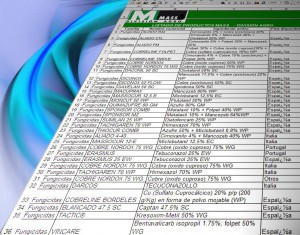All Spare Parts Data is Not Equal

What really matters with spare parts data management?
Recently I heard some consultants talking about spare parts data management and some of the problems that they have seen with their clients.
As part of this discussion they were quoting statistics relating to spare parts data and specifically inaccurate data.
Here what they said:
- 62% of Re Order Points (ROP) are wrong
- 81% of Re Order Quantities (ROQ) are wrong
- 97% of lead times are wrong
Wow, that sounds quite alarming!
But is it?
I deliberately haven’t mentioned who or where I heard these consultants speak because I doubt that this data actually matters at all! Here is why.
First, it’s not your spare parts data that they are quoting: OK maybe it is but let’s not be too alarmed at selected data from others – seek to understand your own data.
Second, for most items it doesn’t matter if these data are wrong: Let’s face it, who cares if the ROP, ROQ or lead time is wrong on a low cost, non critical item. Stock 4, stock 5, stock 10 – who cares if the items cost $1 each!
Third, by how much is the data wrong? If the lead-time is wrong by one day, will that really matter? Are your systems so lean and precise that a day in lead-time will make a difference? I seriously doubt it.
What the discussion on the spare parts data failed to quantify is: at what point does the incorrect data make a significant difference to your results. This is surely the critical point.
The Two Aspects of Spare Parts Data that Really Matter
So if that seemingly important spare parts data doesn’t really matter, then what does?
Well, it turns out that the spare parts data that really matters relates to both your procurement information and understanding the attributes of the specific item.
Here are, in my view, the two most important data to get right:
- The purchasing details. It doesn’t really matter what your ROP, ROQ or lead-time is if your procurement team order the wrong thing because the description, vendor code, UOM or other specifying data are incorrect. You will just end up with the wrong item and that outweighs any other considerations.
- The inventory management data on expensive and critical items. If it costs a lot or it’s really important then you really should make sure that your ROP, ROQ and lead-time are up-to-date. These are the items that make a real difference to your inventory value and your operational performance. The good news is that these items will most likely be 20% or less of your total inventory items (but may make up 80% or more of the value).
So, maybe it turns out that while 97% of lead times are wrong, it only really matters for 20% of your items.
Does this mean that spare parts data on other items can be ignored – of course not. But if you are prioritizing your data review spend (and who doesn’t have to do that) then make sure that you are focusing on the items that really matter.